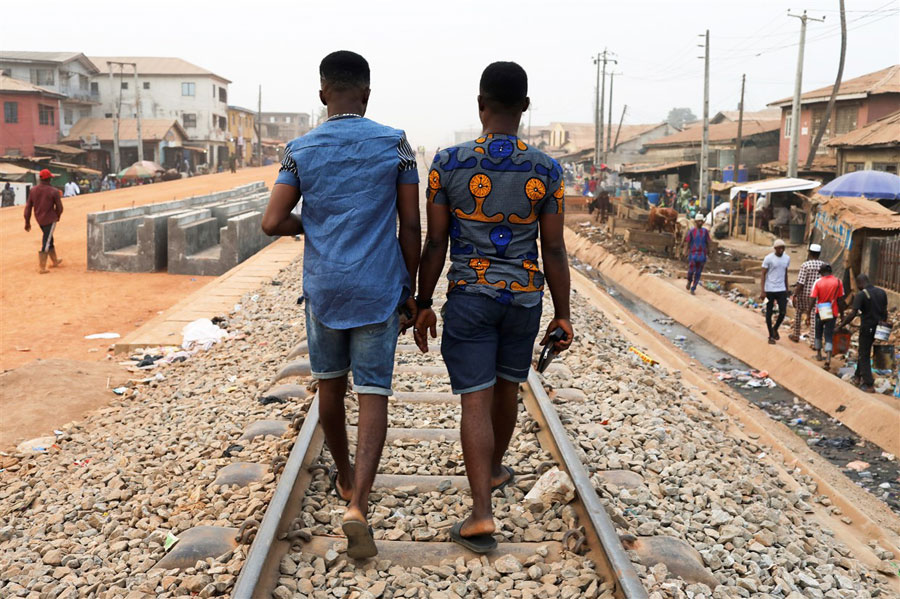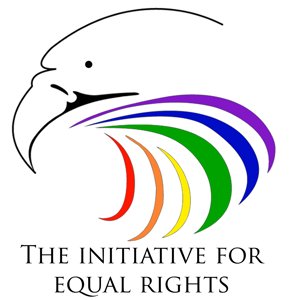Nigerian prosecution flubs 47-man gay trial; judge dismisses case
Colin Stewart is a 45-year journalism veteran. He is the…
A Nigerian court ended a legal stalemate this week, dismissing a two-year-old case against 47 men charged with breaking the country’s 2014 anti-homosexuality law.

That law exacerbated the nation’s homophobia and led to dozens of arrests, but reportedly has never produced any convictions.
The judge threw out the case on Oct. 27. Prosecutors failed to attend that day’s hearing at the federal high court in Lagos, having previously failed to present some of their witnesses in a case that had been adjourned on several occasions.
Justice Rilwan Aikawa struck out the case and said he had done so due to the “lack of diligent prosecution”.
For example, when the trial got under way last February the prosecution called police Inspector Ade Adegboye, who said he knew three of the defendants from his “anti-cultism” work. He declined to answer questions from the defense and said nothing regarding the charges against the men.

In 2014, the Nigerian law banning gay marriage, making it punishable by up to 14 years in prison; public displays of same-sex affection, punishable by up to 10 years; and membership in a gay group, up to 10 years, prompted an international outcry when it came into force under former President Goodluck Jonathan.
The men were arrested in a police raid on a Lagos hotel in the city’s Egbeda district in 2018. Police said the men were being initiated into a gay club, but the defendants said they were just attending a birthday party.
Prosecution and defense lawyers in the case both stated that nobody had yet been convicted under the law. The Lagos case was widely seen as a test case that could help to establish the burden of proof needed for a conviction under the 2014 law.
Outside the court, many of the men smiled and cheered, including dancer James Brown who, smiling, said: “I am free. It means a lot of good things.”
Under Nigerian law, defendants in a case that is struck out can be re-arrested and arraigned again on the same charge, whereas that is not possible in cases that have been dismissed.
“I am not happy, because I’m looking for the matter to end in a way that people will see me and believe what I have been saying from the beginning,” he said, adding that the decision meant he could be charged again.
Oguaghamba and others previously told Reuters they had been stigmatized as a result of the raid and a televised news conference held by police in which they were identified the day after their arrest.
Chris Agiriga, another of the men, said the striking out of the case would not help him to be reconciled with his family who had rejected him over the matter.

“Since the past two years, this has caused a lot of damage in my life,” he said.
Emmanuel Sadi, a program officer with rights group The Initiative for Equal Rights (TIERS), said the outcome of the case raised questions about the law used to charge the men.
“You can’t even build a case around it,” he said. “I hope they (the government) realize how redundant it is as a law, and they are open to removing or repealing it,” he said.
This article includes text from Reuters/NBC and from UNAIDS’s Equal Eyes news briefs.
Related articles:
- Nigeria: Trial starts for 47 men accused of same-sex affection (February 2020, 76crimes.com)
- These 47 men could get 10 years for public displays of affection (November 2019, 76crimes.com)
- Nigeria: ‘Preposterous’ rationale for 57 gay arrests (August 2018, 76crimes.com)
- Nigeria: Police arrest over 100 alleged gays and lesbians (June 2018, 76crimes.com
- Report: Muslim police arrest 70 Nigerian youths for ‘gay’ party September 2017, 76crimes.com)
- Fear-mongering inflicts new abuses on 40 Nigerians (August 2017, 76crimes.com)
- Defending gays in Nigeria: ‘dangerous, risky, stigmatizing’ (August 2017, 76crimes.com)
- 30 Nigerians remain in custody on homosexuality charges (August 2017, 76crimes.com)
- International appeals seek release of 42 in Nigeria (August 2017, 76crimes.com)
- Mass arrest of 40 gay men in Nigeria may harm HIV fight (July 31, 2017, Reuters)
- 53 arrests in Nigeria for alleged same-sex wedding (April 2017, 76crimes.com)





The big question here and now is:
Was the case DISMISSED or STRUCK-DOWN?
As is referred to in the article, DISMISSING a case means that the accused can be re-arrested again on the same charge(s), were STRIKING-DOWN a case means that the accused can NOT be re-arrested on the same charge(s)!
Precision of words and definitions is of the highest importance here I think, as when the case is DISMISSED a re-arrest is hovering over the accused, and the clearance of what they were accused of is missing, causing them no doubt problems with relatives and others, like employers!
One of the defendants who is quoted in the article is clear that they could be arrested again. I agree that the language in the article is imprecise. “Taxi driver Onyeka Oguaghamba … said he was happy the case had been struck out but disappointed that it was not dismissed entirely” — quite different wording from yours. Unfortunately, we at Erasing 76 Crimes do not have access to the lawyers or court documents to verify that the taxi driver’s understanding is correct, even with inaccurate wording.
— Colin Stewart, editor of this blog.
Under Nigerian law, defendants in a case that is struck out can be re-arrested and arraigned again on the same charge, whereas that is not possible in cases that have been dismissed.
Thank you for your reaction…… STRUCK-DOWN or STRUCK-OUT…. From the aticle I understood that a case DISMISSED could cause re-arrest on the same charges, that thus needs to be the other way around, so I understand! Thnk you for that clarification!